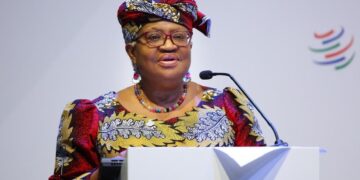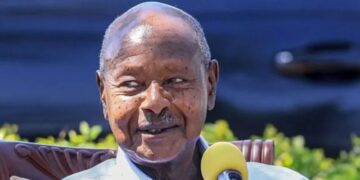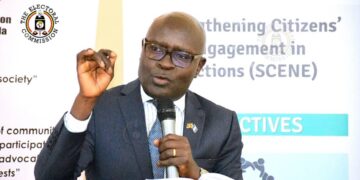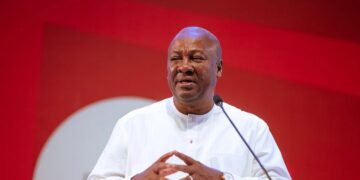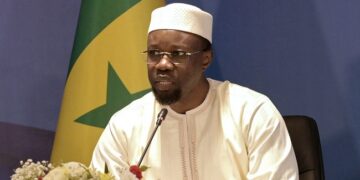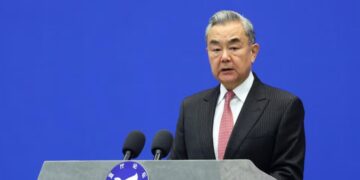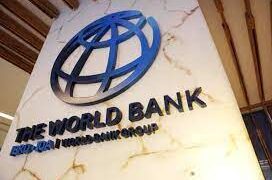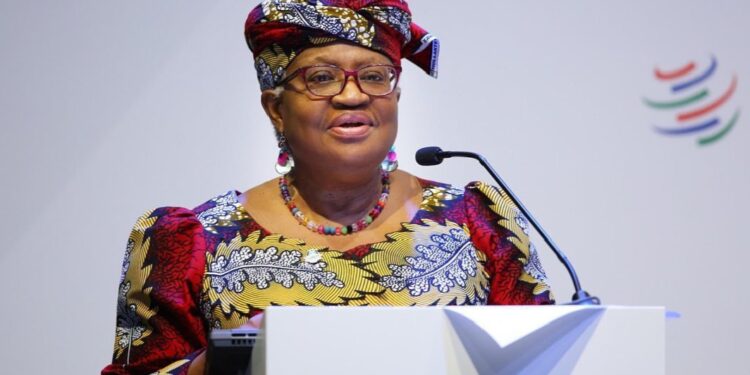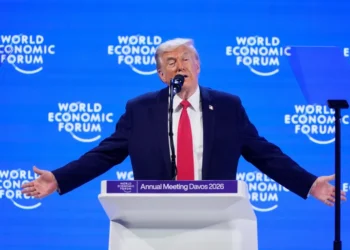By Emmanuel Nduka
Director-General of the World Trade Organisation (WTO), Dr. Ngozi Okonjo-Iweala, has unveiled a $50 million global fund aimed at empowering women entrepreneurs in digital trade, warning that global commerce is navigating “extremely challenging times” marked by rising unilateralism and protectionism.
The initiative, known as the Women Exporters in the Digital Economy (WEIDE) Fund, is a joint programme of the WTO and the International Trade Centre designed to equip women-owned businesses in developing countries with the skills, resources, and networks to compete effectively in global value chains.
Speaking in Abuja, Nigeria’s capital on Thursday, Okonjo-Iweala expressed concern over Nigeria’s relatively low internet penetration, noting that only 45 per cent of Nigerians are online compared to the global average of 67 per cent. She stressed that steady electricity and affordable, reliable internet are essential for unlocking the benefits of digital trade.
“This is more than a programme; it’s going to be a movement,” she said. “We want women entrepreneurs not just surviving, but thriving on the world stage,” she added.
The launch comes as global trade hits $30.4 trillion, with digital trade emerging as its fastest-growing segment.
However, Africa’s share remains under one per cent. She highlighted that the value of digitally-delivered services such as IT, consulting, and education, has grown from $1 trillion in 2005 to $4.25 trillion today, urging Nigerian women to seize the opportunity.
This year, the WEIDE Fund will operate in only four countries: Jordan, Mongolia, the Dominican Republic, and Nigeria. Nigeria’s inclusion followed a competitive selection process involving over 600 business support organisations worldwide, with the Nigerian Export Promotion Council’s proposal, led by Mrs. Nonye Ayeni, standing out.
Over 67,000 Nigerian women entrepreneurs applied for the first cohort. Originally planned for 100 beneficiaries, the quality of entries led to the selection of 146 businesses. Sixteen of them, under the Booster Track, will each receive up to $30,000 and 18 months of technical assistance, while 130 in the Discovery Track will get up to $5,000 and a year of business support. Beneficiaries span sectors including agriculture, IT, fashion, hospitality, beauty, and manufacturing.
Okonjo-Iweala applauded Nigeria’s $2 billion fibre optic project to expand connectivity but emphasised that digital trade growth depends on reliable power supply. She also noted that women remain underrepresented in Nigeria’s ICT sector, which contributed 18 per cent to GDP in 2022, with only 30 per cent of tech firms owned by women.
She warned against policies such as customs duties on cross-border digital trade, saying they could choke small exporters, particularly women-led enterprises. Addressing the awardees, she urged them to “dream bigger, scale higher and go further,” promising to return in two years to measure their progress.
“When women succeed, communities succeed, economies succeed. This is not just a moral case, it’s an economic case. Let’s make it happen,” she concluded.
